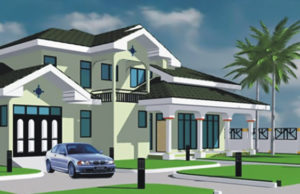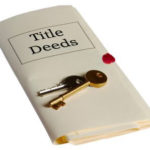 Introduction
Introduction
For decades, joint venture agreements between property developers and land owners have been a popular way of securing property redevelopment and regeneration of old and/or dilapidated buildings mainly within the Lagos metropolis.
These properties do not usually belong to one individual but by persons who belong to the same family (nuclear or extended) and who derive their ownership jointly from a common ancestor or progenitor. These category of properties, referred to as family property, have special rules under native law and custom for alienating or creating third party rights in them.
Nature of Family Property
Individual family members do not possess separate and distinct shares in family property. Neither do they posses distinct interests they can alienate (sell, lease, mortgage or bequeath by will) on their own to third parties. This form of land co-ownership is customary and therefore bears no semblance to co-ownership forms in other common law jurisdictions. Under native law and custom, family members only have possessory rights in family property (subject to good behaviour) unless the property is partitioned by agreement.
Role of Family Head
Each family is typically run by a head and a number of senior members, collectively known
as ‘the principal members and/or accredited representatives’.
In Lagos and Nigeria generally, family property cannot be alienated without the consent of the family head notwithstanding that every other family member wishes it. This is because family property is regarded as an ancestral home with the family head being the custodian. The head of the family thus administers family property assisted by other principal members. In doing so, he may exclude any member of the family from occupying family property for bad behaviour.
Alienating Family Property
Just as family property cannot be alienated without the consent of the family head, it is
important to note that the family head himself cannot alienate family property without the consent
of the other principal members of the family.
Thus, the family head in conjunction with the other principal members (the ‘accredited representatives’) are those permitted to lawfully deal in family property in relation to third parties. This recognition does not however create a ‘trust-for-sale’ concept typical of common law co-ownerships (joint tenancies/tenancy in common) since by tradition family property is not meant for sale.
Key terms in a Joint Venture Development Lease
Here are most key terms of a joint venture development Lease:
MOU
Before signing a development lease agreement, the parties would have discussed and reached understanding on what each expects to benefit from the joint venture. This usually is usually documented as a Memorandum of Understanding (MOU).
Though the development lease would normally include all the terms contained in the memorandum of understanding, it may often be convenient to acknowledges the ‘MOU‘ itself and incorporate it wholly as part and parcel of the lease agreement. This can sometimes be useful to discourage a party deviating from the original understanding at the time of finalising the lease agreement.
Moratorium
Usually, Developers request that the period of time it takes them to complete the project be set aside from the period of the lease to enable them realise good return on their investment. This is referred to as the moratorium period or construction period before the lease begins to run. This period is fixed by the parties depending on the amount of work expected though it normally does not exceed 12 months.
The agreement may provide for a reasonable period of extension of the moratorium period under extenuating circumstances and upon written request of the Developer. At the same time, it will provide for a termination of the agreement if the project is not commenced or completed by within the moratorium period or within the reasonable period of extension. This is important as it prevents a Lease coming into effect so that the property owners are free to engage a new Developer to take on the project.
Rebuild/Refurbish
The exact nature and details of the development to be carried out. Whether refurbishment or renovation of existing structure or outright demolition and rebuilding, including number of floors and types of accommodations to be built along with facilities. Time for project completion, any extension allowed and circumstances for extension to be stated. Would include a break clause to determine the agreement for breach where project is not commenced or completed by within the construction period or within the reasonable period of extension.
Term of Years
20 year Leases are quite common in cases of outright rebuilding. In the case of refurbishing or renovation, a lesser period (varying from 7 to 15 years, depending on extent of work) can be agreed.
Premium
This is a lump sum traditionally paid by the Developer to the family or property owner in consideration for the grant of a long lease. This is one of the negotiated terms which feature prominently in memorandum of understanding.
Rent (Ground Rent)
This is an amount paid by the Developer yearly as nominal rent for the duration of the Lease and which underlies the Lessor/Lessee relationship.
Rent Review
Makes provision for review of rent at periodic intervals.
Guarantor
Where the Developer is a small private limited liability company, it makes good contracting sense to require that its’ obligations under the Lease be guaranteed by any of its Directors or Shareholders.
Material Testing
Where the property is to be refurbished, a clause to require a prior integrity test of the building (usually borne by Developer) is important to ensure that all structural defects are identified and that the development is carried out in accordance with all recommendations of the integrity test report. On completion of the project, a further material testing can also be carried out to ensure compliance.
Building Plan
Requirement that the Developer carry out works in accordance with building plan approved by the relevant government agency.
Planning Permission
Requirement that the Developer obtain planning permit for the development and comply with its requirements.
Prohibited Use
A list of prohibited uses
Outgoings
The Developer as Leaseholder will be responsible for outgoing rates, levies and taxes, present and future imposed on the property or the owner or occupier of the property. In turn, the Developer is expected to pass on the outgoings to his own tenants who will ultimately occupier and use the property.
Insurance
By law, buildings of more than 2 floors are required to be insured in Nigeria. Thus most development Leases will do well to include an insurance clause to ensure the Developer takes out special peril (i.e fire) insurance, being holder of a long Lease in control of the property. An Adept Developer in turn will require the Lessor to take a share of the insurance premium proportionate to the share of the property allocated to the Lessor for his enjoyment.
Repair/Maintenance
This is to ensure that the Developer keeps the entire property in a good state of repair through the Lease. Thus regardless of who he sub-lets to, the Developer is held accountable for dilapidations. As part of this, the Lease can require compulsory general maintenance at periodic interval (e.g every 2 years) in addition to the normal routine maintenance of the property. The agreement can also provide for additional material testing during the Lease or in the last 2 years of the Lease so that the Developer can rectify defects identified as part of final repairs and maintenance before handing back the property to the Lessor.
Alienation
Though, the Lessee is free to sublet, he may not assign or transfer his interest under the Lease to a 3rd party without the written consent of the Lessor.
Naming Property
Usually, the family or property owner will want to dedicate the building to the memory of a loved one. This is normally carried out by the Developer at his own expense in honour of the family.
Arbitration/Mediation
Provision for arbitration or mediation of disputes arising out of or relating to the Agreement.
Re-entry and Forfeiture
The Lessor may re-enter and end a Lease for non-payment of rent after a period in arreas or for other breaches after notice of breach has been served and the Lessee fails to rectify the breach within reasonable time allowed. Other events that may attract forfeiture are bankruptcy, insolvency, strike off from Register of Companies.
Yielding Up
A Lessor may re-enter the property to determine the Lease early for non-payment of rent after a period of time (usually 21 days) or for other breaches after notice of breach has been served and the Lessee fails to remedy the breach. Other occurrences that can attract forfeiture are distress of Lessee’s goods, insolvency, bankruptcy, strike off of a company from the Register of Companies.





Pingback: Dream and Legacy 'HOW TO' Manifesto - "REBUILD INSTITUTION" - Dream and Legacy
Thank you for sharing your superb knowledge on property law online, with the public. For the past 6 hours I have been surfing online searching for a terse write-ups on key covenants on Nigeria Property Development Lease agreement but the result I get were not as encompassing, succinct and helpful as your article on “Family Property and Joint Venture Development Leases in Nigeria.” Thanks once again for this selfless gesture, May your river of knowledge never runs dry.
Thank you for the write-up.
I have just started my property business in January 2020.
I was called to market some Acres of raw Land in Ofada Mowe area. I don’t have enough capital to pay off and start selling.
Kindly guide me on the type of JV I can sign with the family to develop the Land into an Estate and start selling
Thanks for putting an easy read on a new fad in the property development sector.
Easy to understand facts about real estate . Thanks , how does one make contact with developers for private property in Abuja . Thanks and awaiting your response soonest possible .
Greetings. Kindly check your inbox.
Best regards.
Dear Mr Shitta-Bey,
I have a property in Amuwo Odofin, it is a family house and we are looking for developers. Any pointers please to reliable and trustworthy developers.
Thanks
Dr Olusegun
Thanks for stopping by. Hope you found the article useful. Will inbox.